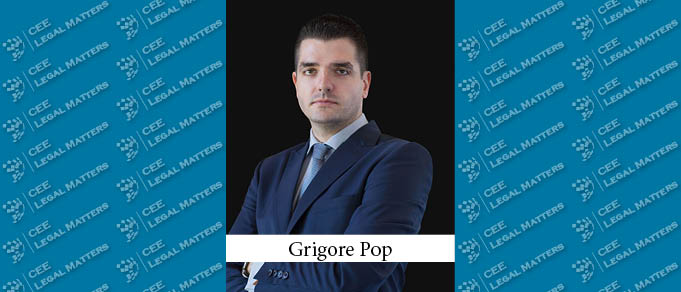Two recent ground-breaking court decisions are the main topics of conversation between lawyers in Romania, according to Vertis Legal Partner Grigore Pop – one involving how criminal courts should operate going forward and one involving another lawyer that raises "serious concerns over the legal profession as a whole."
In the first, the Romanian Constitutional Court ruled that it is only legal for a criminal court to convict a person if it provides its reasoning at the same time as the ruling itself. "In Romania, the norm in both the criminal and civil systems used to be that you'd get a full decision, including the justification and reasoning of the court, some months after the initial ruling," Pop explains. That will no longer be the case for criminal courts, and Pop explains that "while it might seem like a simple procedural update, it will change the way courts function and slow up rulings considerably, in the short term."
Pop says that he assumes the court's ruling is based on the fact that there are several procedural challenges that can be made only after a full ruling is provided, so the new rule will minimize the amount of time a defendant is held in jail until that happens, but he says, "ironically, only the ruling itself has been announced for now – the full considerations for the decision have not yet been provided."
The change will "heavily affect how lawyers prepare for a case," Pop says. "Even when it comes to basic elements such as the weight of oral arguments – they will have a different impact if the ruling happens in a matter of days as opposed to it happening five months down the line." He also is concerned that the judicial system is "not digitized enough to be able to efficiently put forward a lengthy court ruling with all the considerations of the court in an expedited manner." Ultimately, he says, "whether the system is ready to cope with such a sudden and drastic change remains to be determined, for it is a challenge for all legal practitioners.”
In the second major decisions – a ruling that Pop says "rocked the legal profession" – Romania's Supreme Court has reversed the Brasov Court of Appeal's acquittal of lawyer Robert Rosu of charges that he was part of a criminal group. "Rosu was convicted because of the mere fact that he provided legal opinions and argued in favor of his client," Pop says, which the Supreme Court deemed "a crime in that it associates the lawyer with the crime that his client was convicted for."
"The decision essentially means that a lawyer can be convicted for arguing the position of his client – the very basic role of the profession itself," Pop states. He finds it particularly problematic that the court "referred in its decision to a few elements that are not just common, but also considered best practices." For example, he says, when taking the case on, Rosu's law firm provided a due diligence report in which it considered the potential arguments against his case. According to the Court, Pop says, that report was proof that the lawyers knew what they were doing was illegal. “Such statements call into question the very foundation of the legal profession, causing uncertainties that affect precisely those whose rights should be protected by law.”
Rosu is currently serving a five-year sentence, Pop says, while lawyer protests are being organized in every major city. Even the national bar association, "traditionally a conservative, quiet body," is quite vocal over the case and is qualifying it as "a threat to the legal profession."
